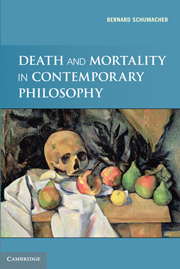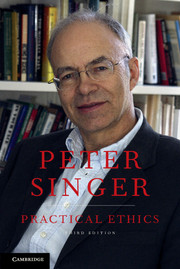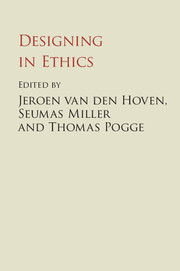Death and Mortality in Contemporary Philosophy
This book contributes to current bioethical debates by providing a critical analysis of the philosophy of human death. Bernard N. Schumacher discusses contemporary philosophical perspectives on death, creating a dialogue between phenomenology, existentialism, and analytic philosophy. He also examines the ancient philosophies that have shaped our current ideas about death. His analysis focuses on three fundamental problems: (1) the definition of human death, (2) the knowledge of mortality and of human death as such, and (3) the question of whether death is “nothing” to us or, on the contrary, whether it can be regarded as an absolute or relative evil. Drawing on scholarship published in four languages and from three distinct currents of thought, this volume represents a comprehensive and systematic study of the philosophy of death, one that provides a provocative basis for discussions of the bioethics of human mortality.
- Incorporates several key currents of thought in the philosophy of death (phenomenology, existentialism and analytic philosophy) in a systematic manner as no other study has tried to do
- Gives an excellent overview of the twentieth-century philosophy of death with a close discussion of the different theses at the heart of the philosophy of death
- Treats publications on the topic of death published in French, German, Spanish and Italian which are often inaccessible to an English-speaking audience
Reviews & endorsements
"Schumacher … makes a significant contribution to biomedical ethics concerning the question of death … The book will benefit those interested in biomedical ethics and those looking for a good point of origin in furthering the philosophical dialogue on death … Recommended …"
J. R. Couch, Choice
"Death and Mortality in Contemporary Philosophy is a work of striking originality, well-crafted and rich in interesting ideas."
George Lăzăroiu, Review of Contemporary Philosophy
"I strongly recommend this book to anyone with an interest in the philosophical discussion of death or simply an interest in the meaning of his or her own death."
John P. Lizza, Mind
Product details
September 2010Paperback
9780521171199
270 pages
228 × 153 × 14 mm
0.38kg
Available
Table of Contents
- Part I. Human Personal Death:
- 1. Introduction
- 2. Biological death
- 3. So-called 'personal death'
- 4. The anthropological challenge of neocortical death
- 5. Ethics as the criterion for defining death
- 6. Diversity of definitions of death in a secular ethic
- 7. Conclusion
- Part II. Theory of Knowledge about Death:
- 8. Scheler's intuitive knowledge of mortality
- 9. Heidegger's being-towards-death
- 10. Is mortality the object of foreknowledge?
- 11. Inductive knowledge of death and Jean-Paul Sartre
- 12. Knowledge of mortality is inseparable from the relation to the other
- 13. Death as the object of experience
- Part III. Does Death Mean Nothing to Us?:
- 14. The 'nothingness of death': Epicurus and his followers
- 15. Discussion of experientialism and the need for a subject
- 16. Death: an evil of privation
- Conclusion.






